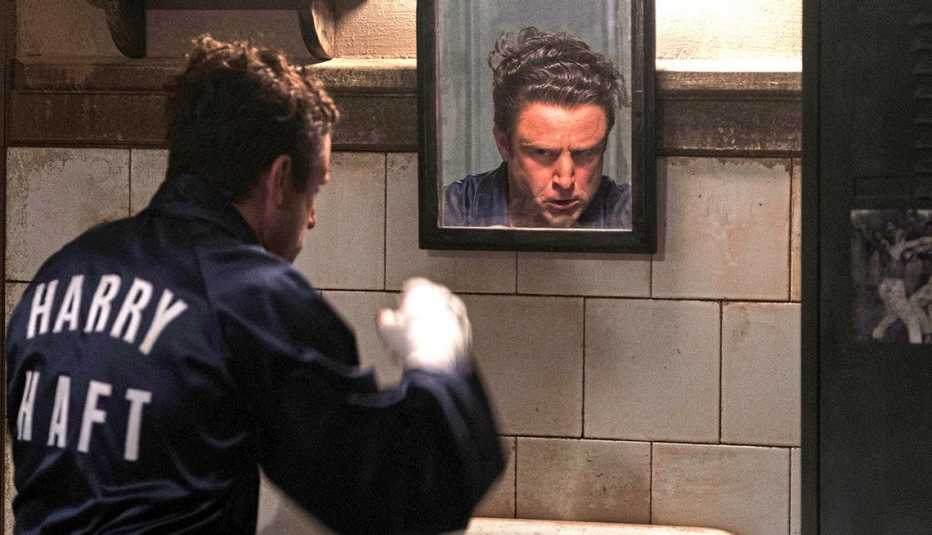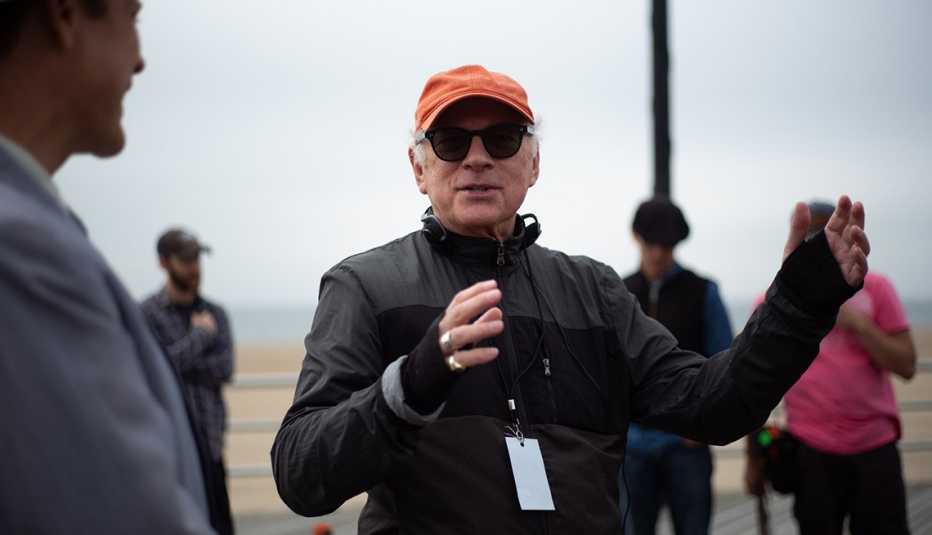AARP Hearing Center


Director Barry Levinson, 80 (Rain Man, Good Morning, Vietnam), tackles his toughest subject in The Survivor (HBO and HBO Max, April 27), starring Ben Foster as Harry Haft, who was forced to fight 76 other prisoners at Auschwitz to entertain SS officers, who bet on him and shot losers. “Harry killed a guard in his fight to survive and his struggle to reach freedom,” Levinson says.
Haft escaped to America and became a pro boxer who fought world heavyweight champ Rocky Marciano, saying, “After all I’ve been through, what harm can a man with gloves on his hands do me?”
Haft hoped that the headlines about his fights would be noticed by his first sweetheart, with whom he’d lost touch after the war, and reunite them. She’s played by Israeli actress Dar Zuzovsky, whose grandfather was in the same concentration camp as Haft. Danny DeVito and John Leguizamo play Haft’s American trainers, and Vicki Kreps (Phantom Thread) plays Miriam Wofsoniker, the wife who eventually helped Haft overcome his trauma. Billy Magnussen is brilliantly chilling as Haft’s Nazi fight promoter. Foster’s performance is powered by his thoughts of his own grandparents, refugees from the Russian invaders who murdered millions in Ukraine in the 1920s and 1930s. Foster and Levinson both think that Haft’s story resonates today.
USC Shoah Foundation executive Stephen Smith calls The Survivor “one of the best contributions to Holocaust filmography since Schindler’s List.” It debuts on Yom HaShoah (Holocaust Remembrance Day).




































































More on Entertainment
Kenneth Branagh Spills the Secrets of ‘Belfast’
The writer-director-star tells AARP about his autobiographical hit and life lessonsMeet Ben Franklin
Ken Burns reveals a Founding Father’s soul in a PBS documentary
17 Entertaining Biopic Movies to Watch Now
Great stories from 'Norma Rae' to Queen Elizabeth II